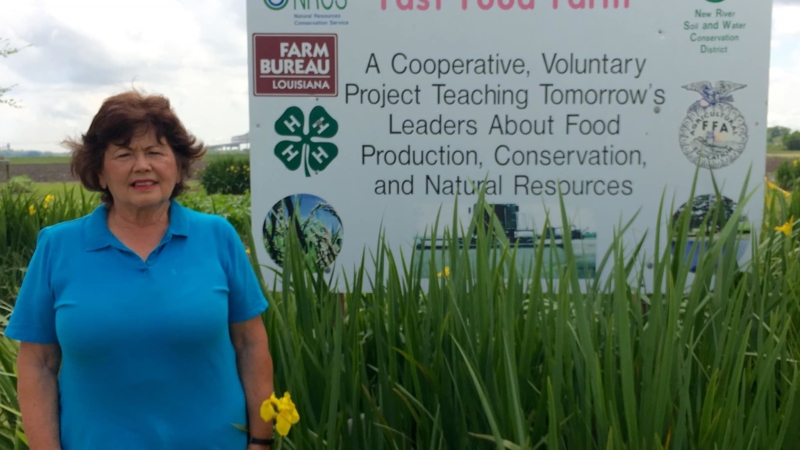Teaching Sustainability Using Fast Food
Deep in Louisiana sugarcane country, there lies a giant hamburger. Or rather, a food plot in the shape of a hamburger. Not too far away there are similar gardens in the shape of a hot dog, a box of french fries and a taco.
This is the Fast Food Farm in St. James Parish, a non-profit educational farm started by Denny Hymel more than 20 years ago after realizing that children were increasingly disconnected from the farms where their food comes from.
Each of the shapes above contains the individual crops used to make these common fast food items, while a nearby chicken coop provides eggs. Hands-on activities connect the farm’s school-aged visitors to each plot so they can learn first-hand how food is grown and processed.
 “I just felt a great need to create something I can teach them and bring about that awareness of how important agriculture is to everyone,” Denny says.
“I just felt a great need to create something I can teach them and bring about that awareness of how important agriculture is to everyone,” Denny says.
The Fast Food Farm plays an important role in the sugar industry’s sustainability story. It’s critical that future generations understand not only how agriculture works, but also the importance of protecting the air, land and water that nurtures those crops.
“I’m teaching them how to plant, how to grow their own food. That’s sustainability,” Denny says. “They are growing. They are taking it back to their homes and they are telling their parents I want to grow this in my garden.”
Not only does Denny work with school children to help them learn more about agriculture, but any extra produce or eggs are donated to a local charity to help feed neighbors in need.
In total, approximately 95,000 people have visited the Fast Food Farm over the years. And when the pandemic put a hold on educational field trips, Denny worked quickly to provide children with hundreds of drive through “ag-tivities” in order to provide a safe and socially distant learning opportunity.




